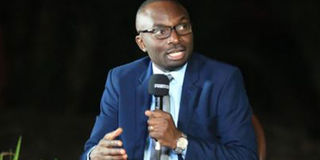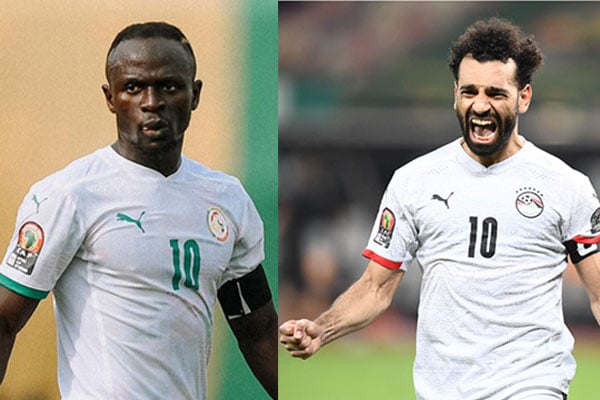Roots of the backstory of dearth of creativity at Afcon 2021 can be traced back to Europe

Author: Robert Madoi is a sports journalist and analyst. PHOTO/FILE/NMG.
What you need to know:
- Sure enough, the vast bulk of matches at the showpiece tournament – such as the five-goal thriller that quashed Ghanaian hopes – were at once watchable and serviceable. But with another goals per match ratio of under two in the offing, the breadth of the lack of creativity in African football has yet again been laid bare.
The curtain comes down on the 2021 Africa Cup of Nations (Afcon) tomorrow. Evidently, any claim that Africa’s flagship football tournament has been a showstopper would meet massive resistance. No one, as far as can be known, has been generous enough to use the ‘best-ever’ label while taking stock of what has been on display in Cameroon.
Sure enough, the vast bulk of matches at the showpiece tournament – such as the five-goal thriller that quashed Ghanaian hopes – were at once watchable and serviceable. But with another goals per match ratio of under two in the offing, the breadth of the lack of creativity in African football has yet again been laid bare.
Some context: The past two Uefa European Championships have fallen marginally short of the three goals per match ratio. It’s plain, in sum, that the Afcon goal drought is indicative of African football making heavy weather of producing schemers.
Such a state of affairs should mean many tough calls and fine judgments. But it appears Africa doesn’t want to have this conversation – not yet, anyway. Senegal, who will tomorrow contest their third Afcon final, bring a lot of granularity to this discussion.
The Lions of Teranga have barely managed a showreel of watchable highlights. Seeing them in action has been akin to watching paint dry, never mind that their entire squad plies its trade in Europe.
This much vaunted European experience in question was not all it was cracked up to be. What with a midfield that has – to mention two – Cheikhou Kouyaté and Idrissa Gana Gueye putting up performances that always seem to end with a whimper! Arguments that the two players shouldn’t be blamed because they are water carriers by trade carry weight. They nevertheless miss an essential point encapsulated in the answer to a ‘why’ question.
So on to that question: Why does the scope and ultimate goals of African schemers in Europe’s major football leagues remain unclear? Most of them end up losing their creative spark if – much like John Obi Mikel – they are re-purposed into water carriers. While some want to treat such attempts at re-purposing as if they are unlike anything else they had encountered, to others the sense of purpose couldn’t be clearer. There is something sinister about the motives.
The comments Laurent Blanc casually made in 2011 should crystallise things. In case you have forgotten, the Frenchman said football flair and finesse often eludes black players who are overly reliant on their athletic prowess (euphemism for power and speed).
Blanc said then of the biquitousness of blacks in French football academies: “You have the impression that they really train the same prototype of players: big, strong, powerful …
What is there that is currently big, strong, powerful? The blacks. That’s the way it is. It’s a current fact. God knows that in the training centres and football schools there are loads of them.”
Unsurprisingly, Blanc took exception to interpretations that suggested he meant that black footballers are physically superior but mentally inferior. Whether it was a gross oversimplification is still up for debate. One thing that is certain, though, is that anecdotal evidence suggests that in Europe some tasks are deemed not to fall within the purview of an African footballer.
The end result – the like of which we have seen at the ongoing Afcon – is a square peg winding up in a round hole. Take Cameroon expecting André-Frank Zambo Anguissa to ooze creativity when in fact his European club expects – even demands – that he does a hatchet job week in, week out.
Email: [email protected]
Twitter: @robertmadoi




